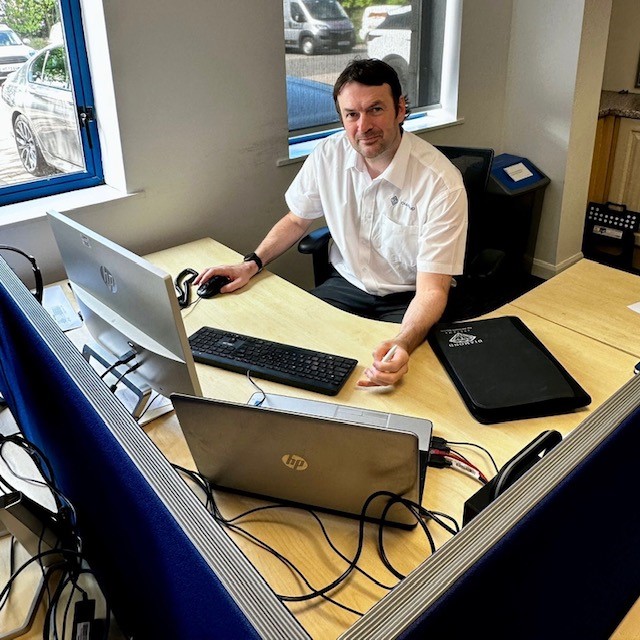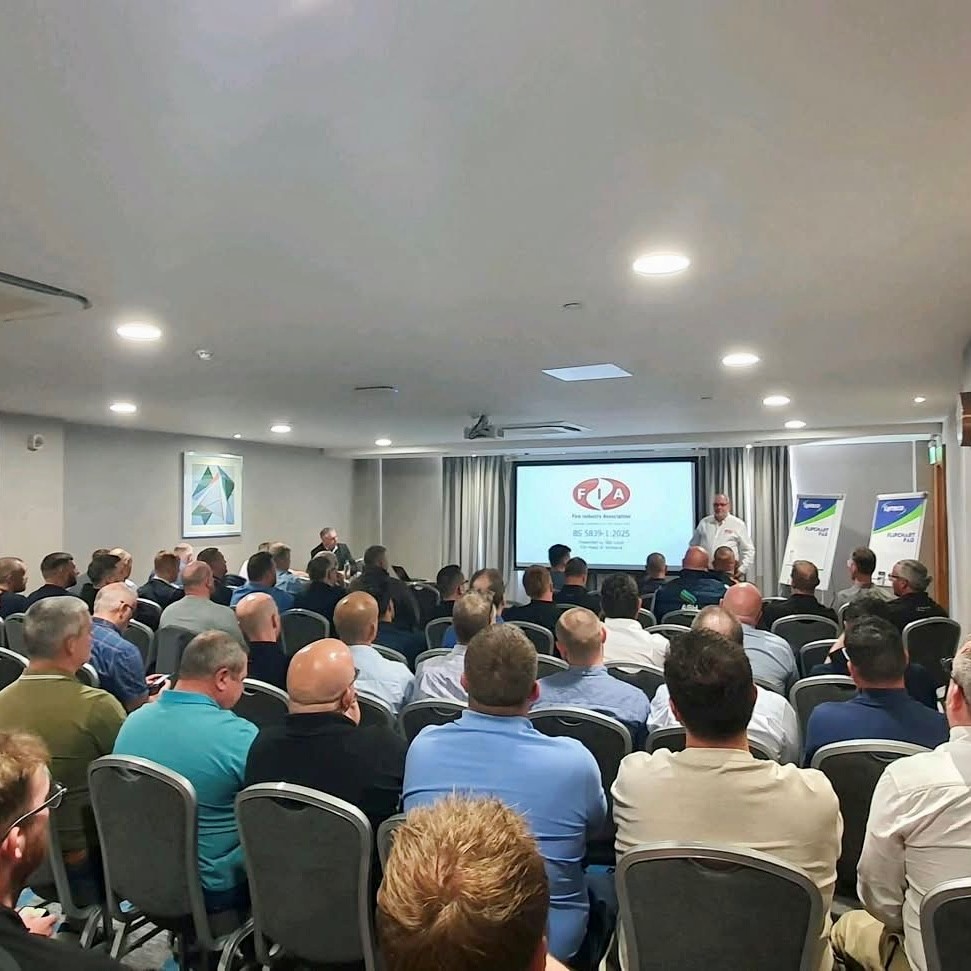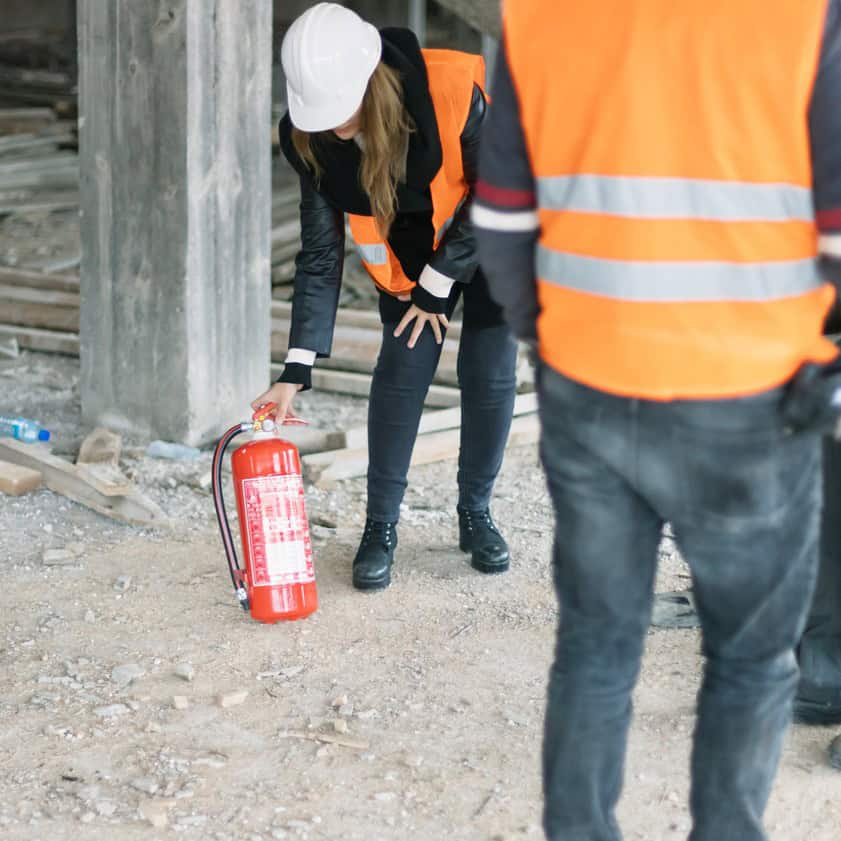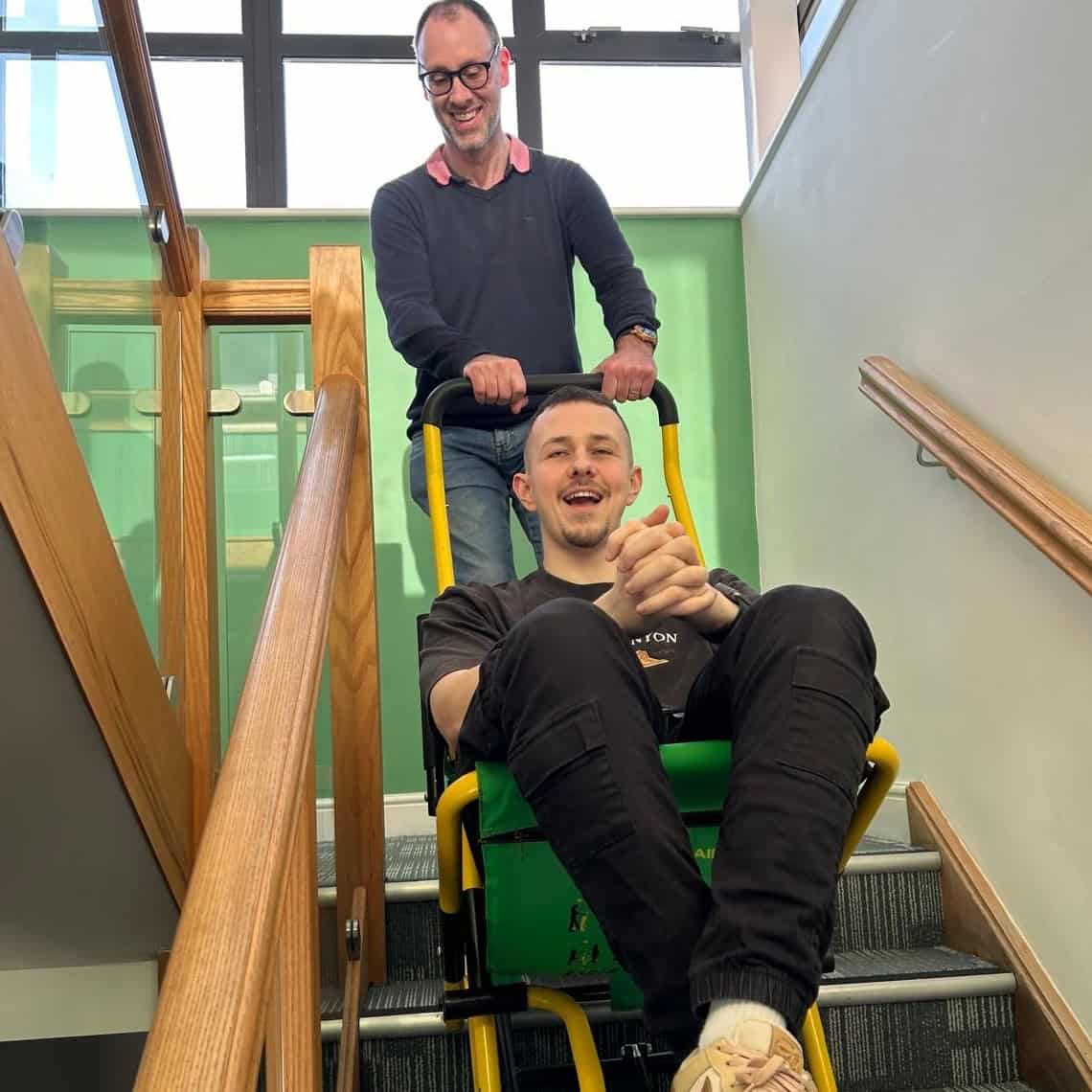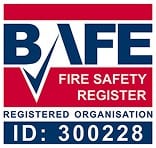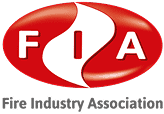On the morning of 17th June 2025, we welcomed fire alarm designers, specifiers, engineers, and end users from across Northern Ireland to our Breakfast Briefing on the newly updated BS 5839-1:2025 standard and changes to NI Building Regulations Technical Booklet E. The beautiful T3 Conference Centre in Lisburn was our venue, unique in that the room hire rate is donated entirely to charity.
With significant fire safety updates now in force, including revised competency requirements and updated detection guidance for sleeping risks, staying informed is essential for anyone involved in fire detection and alarm system design, installation or maintenance.
Industry Insight Straight from the Experts
We were delighted to host Will Lloyd from the Fire Industry Association (FIA), who made the journey to Belfast to deliver an in-depth and engaging presentation on the changes to BS 5839-1 – the British Standard for fire detection and alarm systems in non-domestic buildings.
Some of the topics Will covered included:
- 🔧 Revised competency definitions
- 📋 Variations and zone plans
- 📶 Alarm transmission and class change systems
- 🛏️ Detection changes for L2 sleeping risks
- 🚧 Obstructions (e.g. ductwork)
- 🔍 Accessibility for maintenance
- 🔥 Use of heat detectors and cable requirements
- 🧰 Pink sleeving (Will’s personal highlight!)
- 🚨 Transparent covers on manual call points
- 🧪 Battery calculations
- 🔐 Cybersecurity considerations
- 🔁 Service intervals and system integrity
Fun fact: BS 5839 has been around for 45 years and has only undergone 11 revisions – making this latest version one of the most comprehensive to date.
Updates to Northern Ireland Building Regulations
Our own Angela Bennett MSc, FCA, Joint Managing Director of Diamond Systems, also provided a clear and concise overview of recent changes to Technical Booklet E, the fire safety guidance within the Northern Ireland Building Regulations.
One of the key updates is the requirement at project handover to provide comprehensive Fire Safety Information to the occupier – and to notify the relevant local council that this has been done. This is a significant change for developers and building control officers alike, reinforcing the importance of clear fire safety communication from project start to finish.
Staying Compliant, Connected – and Well-Fed!
With a packed room of local engineering consultants and fire safety professionals, it was fantastic to see so many engaged attendees taking proactive steps to stay up to date with legislation and standards.
Events like these help ensure our industry remains informed, compliant, and connected – and they’re a great opportunity to earn CPD hours while enjoying a coffee and a scone!
Want to Stay in the Loop?
If you’d like to be notified about future Diamond Systems briefings, CPD sessions, or training events, get in touch with our team or follow us on LinkedIn for updates.
Until then, if you’re working on fire alarm designs, make sure you’re working from the 2025 version – and if you need support interpreting the changes or reviewing your specifications, we’re happy to help.


